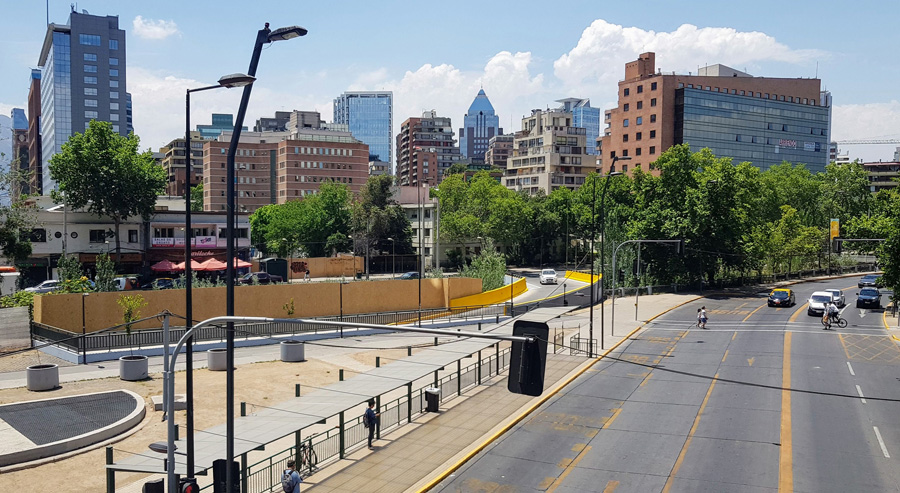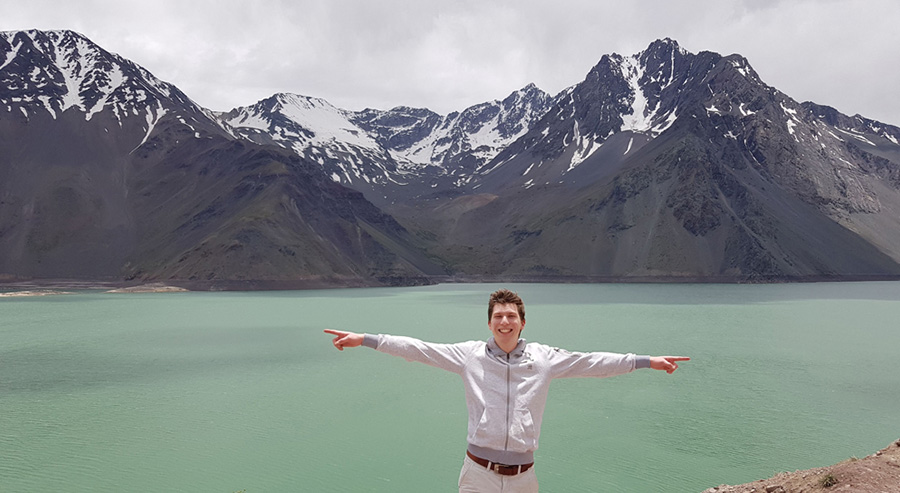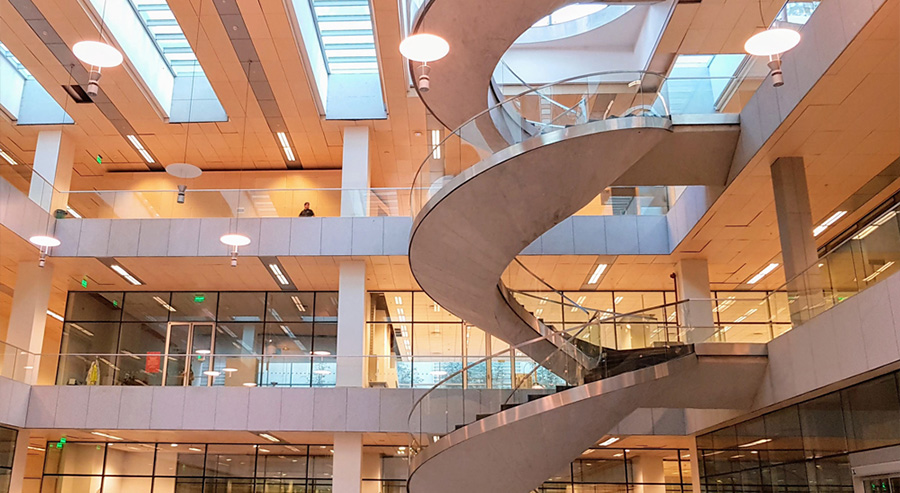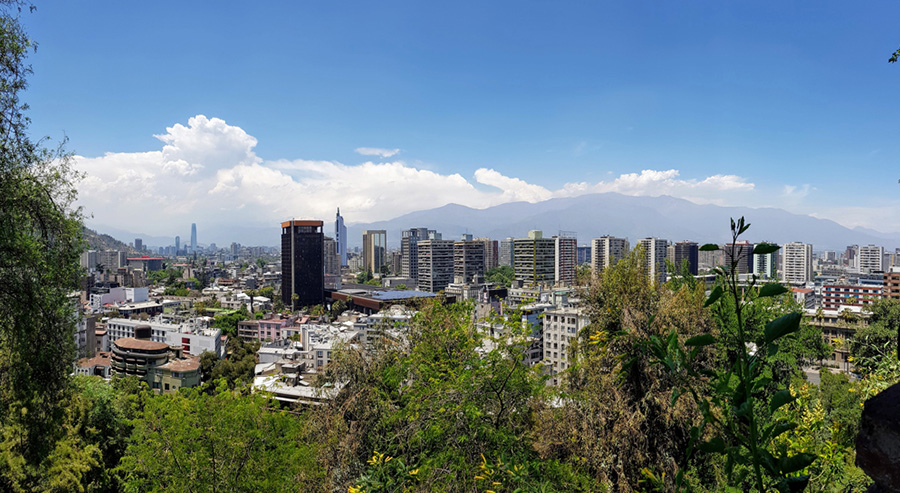Odd one out: student presents bachelor thesis at esteemed conference
Philippe Debie took a rather literal approach to going the extra mile. His bachelor thesis led him to Santiago, Chile – approximately 7450 miles or 12,000 kilometers away – where he presented his work at a renowned international conference.
For Philippe, it was his first time attending an international conference, let alone presenting at one. No wonder: bachelor’s students are anything but a common sight at such events. “I didn’t meet any other undergraduate students. It was all PhD students and professors”, Philippe explains.
So how did the Data Science and Knowledge Engineering student end up at the high-profile gathering? “From the moment the project started, my supervisor intended to publish the results as a scientific paper. One day, she simply entered the room and said: we are going to submit your thesis there.” There, in this case, meant to the prestigious IEEE Web Intelligence conference in Santiago. “I thought, sure, it’s unlikely that it will get accepted, but that seems super interesting so let’s go for it. You can imagine my surprise when we received a message that we could go.”
Philippe kept a travel diary of his experiences in Chile, which you can find below.
Philippe completed his thesis at the Department of Data Science and Knowledge Engineering as part of the KE@Work programme, under supervision of Weiwei Wang (APG), Stefano Bromuri (Open Universiteit Nederland) and Matúš Mihalák (DKE, Maastricht University).
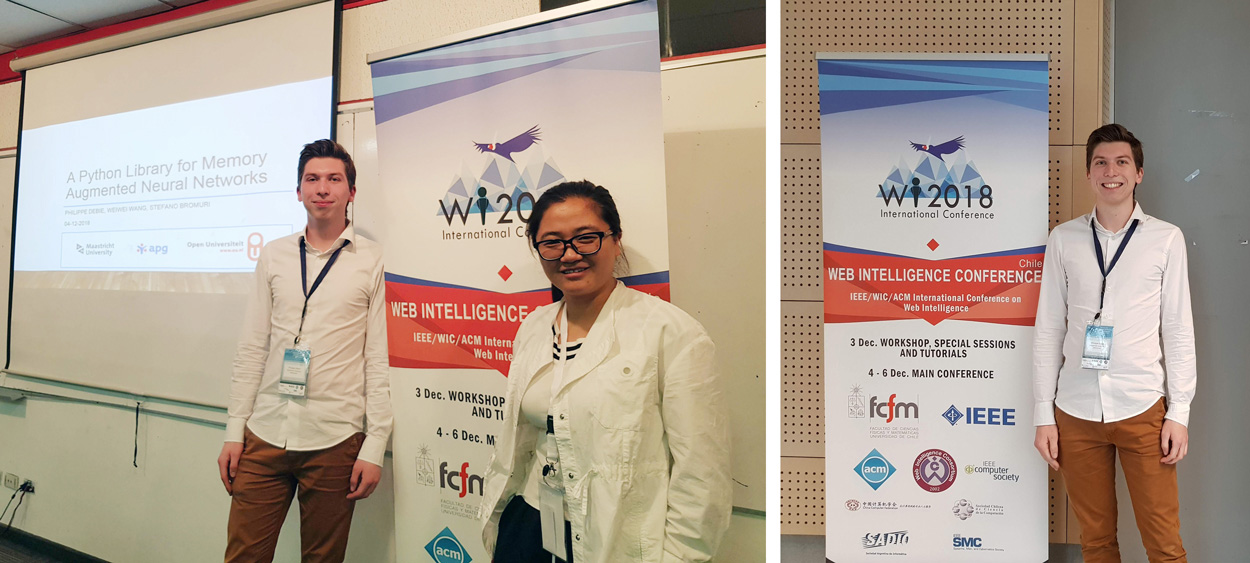
Day one: internet, por favor
As one might expect from attendants of a conference by the name of ‘Web Intelligence’, Philippe and his thesis supervisor Weiwei Wang spent their first hours in Chile trying to get affordable internet access. Philippe: “My Spanish doesn’t go beyond ‘gracias’. We went around town using Google Translate on our phones and pointing at a sim card, trying to see if shop owners would understand that we wanted to purchase one. It ended up taking two or three hours! It felt like a waste of time, but looking back, it was also a lot of fun visiting all those shops.”
Day three: Eduroam
The conference organization, too, had its priorities straight. Upon arriving at the conference site – the University of Chile – Philippe’s phone immediately switched over to Eduroam, the global wifi service for research and education. With the internet issue out of the way, Philippe turned his attention towards the conference. “The first day was reserved for workshops. One of my current student projects [as a master’s student Data Science for Decision Making] focuses on finance, where we try to see if we can predict the foreign exchange market. I attended a four-hour workshop that gave me a lot of new ideas for this.”
Day four: conference presentation
Philippe and his supervisor received a twenty-minute slot to present their work on the second day of the conference. “I was initially pretty nervous,” Philippe reminisces, “but afterwards it didn’t feel so different from the presentation I gave back in Maastricht. I’ll be less nervous next time. Beforehand, I was afraid my presentation would stand out in a bad way. After discussing the presentation with some people during the coffee break, I think I can say that my presentation went much better than I expected. Looking back, I’m really happy with the result.”
Day five: earthquake
On the way to the penultimate conference day, an earthquake of magnitude 5.4 on the Richter scale struck Santiago. “Local residents were not impressed. Everything there is constructed with earthquakes in mind, as there are small ones almost every day. I did feel something, but I thought it was vibrations of a bus passing by. Then the conference showed a mandatory safety instruction video, and I realized what happened.”
If not even an earthquake can shake Philippe, then what can? As it turns out, he had a great time in Chile and took no less than 1,000 photos during the trip and at the conference. We’ll share some of his favorite photos with you here.
Philippe’s bachelor thesis
A Python Library for Memory Augmented Neural Networks (Philippe Debie, 2018)
Neural networks are collections of algorithms that can ‘learn’ certain tasks, for example to recognize objects on photos. The algorithms are linked in a way that vaguely resembles how brain cells connect. Unlike computers, which have separate parts for memory storage and computation, neural networks usually combine these two elements. This means that the amount of data they can process is limited. In 2015, researchers introduced a neural network that does not take up as much space to store data, although there is a tradeoff with the amount of time it takes to run.
“The goal of my thesis was to experiment a bit, to see what that neural network can and cannot do”, Philippe explains. “However, I didn’t find any way to use the network easily, so I had to start out by implementing it. I kept on going and eventually included a second, newer version of that neural network, so you can use both. I ended up creating a library, which automates a lot of the coding you need to get it to work. With our library, you can use the neural networks with ten lines of code instead of the hundreds it would take otherwise. I also tested the neural networks myself, but they didn’t really help in the specific case I looked at. No matter: the networks can be used now, and that will allow others to explore them further.”
